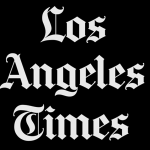March 27, 2021
These tales of AI and its effects on future life
UW News

Artificial Intelligence is making its mark on life around the world, and that phenomenon is captured in the 19 fiction stories gathered in “Telling Stories: On Culturally Responsive Artificial Intelligence,” Together, the 19 stories are meant to ask: “What world — what worlds? — will we build with artificial intelligence?” The stories were written by authors […]
MoreMarch 26, 2021
TPL Students Savannah McKinnon and Rian Wanstreet on “Meating the COVID Moment”
UW Law

TPL Students Savannah McKinnon and Rian Wanstreet have recently brought to light the issues in the processing industry with regards to government oversight and technology which call for a changes to laws and policy. As these issues have been exacerbated by the COVID 19 pandemic, the authors presented at the Yale Big Ag and Antitrust […]
ArticleMarch 23, 2021
Questionable Utility of COVID-19 Contact Tracing Apps
Seattle Times

“I have yet to see any convincing evidence that they’re worth it,” said Ryan Calo, a University of Washington law professor who has written critically about the apps for months and testified in front of a congressional committee last April, in an interview with Stateline. “A lot of money, a lot of attention, a lot […]
MoreMarch 11, 2021
TPL Associate Faculty and Graduate Student Look In To How Large Computer Language Models Carry Environmental and Social Risks
UW News

TPL Associate Faculty, Emily Bender, a professor in Linguistics, and TPL Graduate Student Angelina McMillan-Major, along with others, including Timnit Gebru, look in the costs, both environmental and social, of trying to teach machines the gift of language.
ArticleJanuary 16, 2021
Calo co-written Op-Ed on Social Media, Misinformation, Elections, and Bans
Los Angeles Times

Op-Ed looks at distinguishing the difference between attributing user speech to a platform, which is forbidden, and failure to have reasonable community safety. Also discusses regulating possibly harmful algorithms and how design choices that can amplify negative rhetoric and possible future harm. Los Angeles Times For further reading on Social Media, Misinformation, Elections, and Bans, […]
MoreDecember 24, 2020
First-Generation Tech Policy Lab Student Advances Issues at Intersection of Law and Technology
UW Law

Current law student, and former Tech Policy Lab student, Nicole Buckley has had a number of opportunities to be a part of ground-breaking research during her time at UW Law, the first of which was serving a Hazelton Fellow with the Tech Policy Lab. Buckley has also been able to view the intersections of technology […]
ArticleSeptember 29, 2020
UW Researchers, including TPL faculty, looked in to ads on 200 news sites to track misinformation
UW News
UW Researchers, including TPL Co-Director Yoshi Kohno and TPL affiliate faculty Franziska Roesner, explain the many ways that online ads are different from traditional advertising that was intended to sell products, including how advertising on the web can also be a mechanism to deliver content, misleading in their form, and personalized in a manner that […]
ArticleSeptember 22, 2020
Calo on the Automated Administrative State at Northeastern University CLIC IP/Tech Lecture Series
Northeastern Law

Professor Ryan Calo, co-director of the Tech Policy Lab, presented at Northeastern University’s Center for Law, Innovation and Creativity (CLIC). Professor Calo discussed automation and the issues raised by its use by administrative agencies. The lecture is a part of Northeastern University School of Law’s 2020 IP/Tech Lecture Series: The New Digital Divide.
ArticleMay 30, 2020
States’ Automated Systems Are Trapping Citizens in Bureaucratic Nightmares
Time

“‘Throwing away expertise and nimbleness … in favor of software and automation, at some point it begins to undermine the very justification of the administrative state,’ says Ryan Calo, a professor at the University of Washington Law School.”
ArticleMay 5, 2020
As agriculture increasingly relies on technology, concerns about security vulnerabilities
Logic

In this long form article in Logic Magazine, Tech Policy Lab student Rian Wanstreet describes how agricultural production is increasingly relying on sensors and internet-connected devices that are rife with security vulnerabilities. Attacking Agriculture, Logic Magazine, May 4, 2020
Article